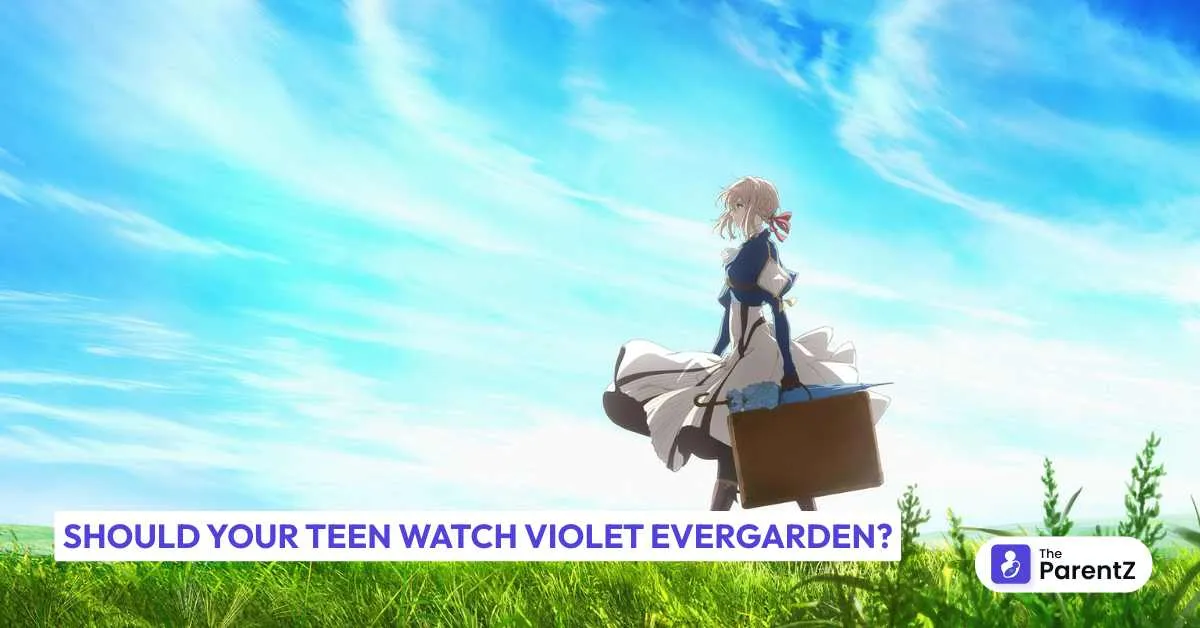Introduction
If most anime hit hard and fast with action, Violet Evergarden does the opposite. It moves slowly, quietly—like a letter being written in real time. With breathtaking animation and a haunting soundtrack, it tells the story of a girl learning to feel again.
But don’t mistake its softness for simplicity. Violet Evergarden is emotionally intense, layered with grief, guilt, trauma, and the desperate search for meaning. For teens, it can be incredibly therapeutic—or, if unprepared, quietly overwhelming.
Overview
Violet Evergarden is a former child soldier who, after the war ends, finds herself without purpose—or emotion. Raised as a weapon and robbed of a traditional childhood, she struggles with the basic nuances of human feeling.
After being separated from Major Gilbert, the superior officer she was emotionally attached to, Violet begins a new life as an "Auto Memory Doll"—a professional letter-writer who helps others express their deepest thoughts and emotions.
Through her clients’ stories—letters of love, regret, longing, and reconciliation—Violet begins to confront her own pain and slowly uncovers what it means to live with both sorrow and hope.
Themes
1. Emotional Reconnection After Trauma
Violet doesn’t cry. She doesn’t know how to smile. Her speech is formal and robotic. Watching her evolve—soften—is the emotional core of the series. It’s a slow transformation, earned through listening to others and, eventually, listening to herself.
For teens navigating emotional numbness, dissociation, or the aftermath of grief or anxiety, Violet's journey can feel like a mirror held up to their own internal silence.
2. War, Loss, and Survivor’s Guilt
Though not graphic, the series deals heavily with the emotional scars left by war. Violet has killed. She has lost comrades. And she lives with the weight of a final, unreturned “I love you” from the man who may—or may not—have died in battle.
Her grief isn’t loud. It’s frozen. For teens who are grieving or who carry unspoken emotional weight, the show offers a space for validation—and perhaps a way forward.
3. Empathy and the Power of Expression
Each episode centers on a different letter Violet writes for someone else. These stories include a mother preparing letters for her dying child, a soldier writing to his family before going to the front, and a playwright struggling with his daughter’s death.
These vignettes aren’t just emotional—they’re lessons in how people carry pain, and how the right words can bridge distances we thought were unbridgeable.
Age Preference
Recommended for: 14+ (with guided discussion)
There’s no sexual content and only minimal violence, but the emotional weight is heavy. Teens should be mature enough to sit with themes of grief, death, emotional repression, and long-term healing.
Who Should Not Watch
- Very young or emotionally immature teens
- Viewers currently dealing with fresh grief or trauma without support
- Teens expecting fantasy, action, or romance as central themes
This is a show that deals with stillness and sadness. It’s not thrilling—it’s tender. And that tenderness can be emotionally raw.
Lessons From It
Violet Evergarden teaches that healing is not a straight line. That you don’t need to be loud to be strong. That listening can be an act of love.
It’s about choosing to live—not because everything is okay, but because you’re willing to try. It teaches that love doesn’t disappear with death, and that words, when chosen with care, can carry people across lifetimes of silence.
It also shows how trauma doesn’t define a person. Violet is both a former killer and a letter-writer. Both hurt and healer. That contradiction is what makes her real.
Conclusion
Violet Evergarden is not for every teen—but for the right teen, at the right time, it can be life-changing. It doesn’t shock. It doesn’t rush. It simply invites the viewer to feel.
If your teen wants to watch it, consider watching with them. Not to explain anything—but to be present. Because when this show works, it doesn’t leave people with answers. It leaves them with the courage to ask their own questions.
And sometimes, especially in a world full of noise, that’s exactly what a teenager needs most—to feel something slowly, deeply, and honestly.





Be the first one to comment on this story.